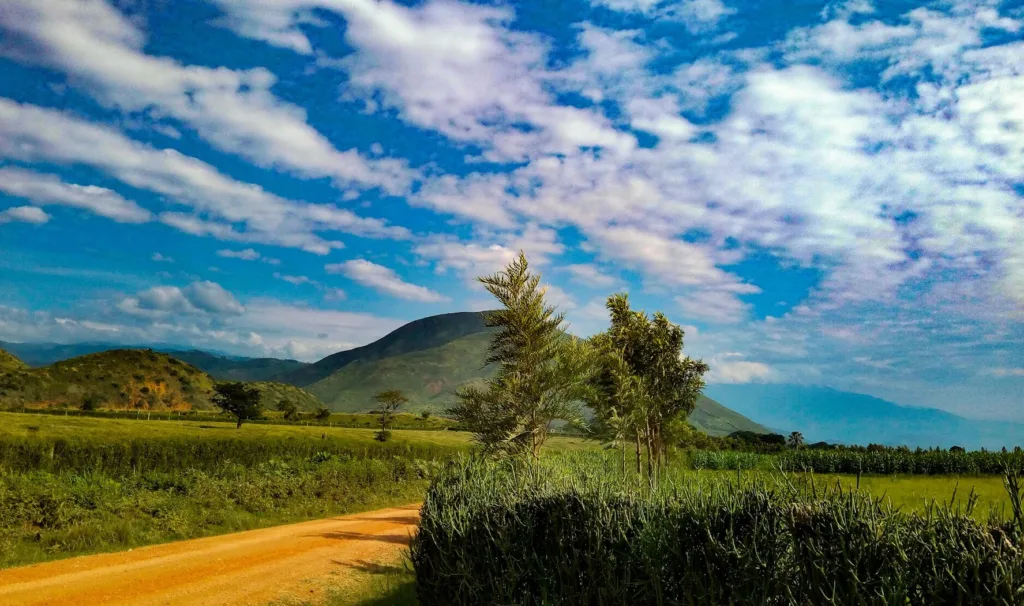Tanzania is a beautiful country, known for its Serengeti National Park and Kilimanjaro National Park (home to Africa’s highest mountain).
However, it’s also a country where malaria is a significant health concern. The entire country is considered at high risk for malaria.
Knowing this, you might be wondering – are malaria tablets needed for Tanzania travel? This article will cover everything needed to answer this question, so you can travel with confidence in your health.
Should Travelers Take Malaria Tablets for Tanzania?
Yes, doctors strongly recommend antimalarial tablets for most travelers, if prescribed. While other precautions can help – such as protective clothing and insect repellent – malaria medications help kill the malaria parasite and avoid transmission.
Do Risk Levels Vary Across Different Regions in Tanzania?
The entire country of Tanzania is generally at high risk – with the exception of areas over 5,900ft in elevation.
You might find varying levels of mosquito concentrations inside vs. outside of cities, but the risk still remains high throughout (especially during dawn and dusk hours).
Malaria Prevention Strategies
Preventing malaria involves taking steps to avoid mosquito bites and taking antimalarial medications. Both measures are important for travelers to Tanzania.
1. Antimalarial Medications
There are several types of antimalarial drugs available, each with its advantages and considerations. The choice of medication can depend on:
- Health history
- Duration of the trip
- Specific areas of travel within Tanzania
Commonly prescribed antimalarials include Malarone, Doxycycline, and Mefloquine.
Among the three, Malarone is often most-recommended – due to more tolerable side effects for travel, without reducing effectiveness.
2. Personal Protective Measures
In addition to taking antimalarial medications, personal protective measures against mosquito bites are essential. This includes:
- Using insect repellent with DEET
- Wearing long-sleeved shirts and pants
- Sleeping under insecticide-treated mosquito nets (if a high mosquito concentration surrounds you)
Avoiding outdoor activities during peak mosquito biting times, primarily from dusk to dawn, is also recommended.
Side Effects of Malaria Tablets During Travel in Tanzania
Malaria tablets are a key component of preventing malaria during your travels in Tanzania. However, like all medications, they come with potential side effects that travelers should be aware of.
- Doxycycline side effects may include upset stomach and sensitivity to sunlight – which can limit outdoor activities – which is not ideal for travelers looking to explore the great outdoors during their trips.
- Mefloquine may cause nausea and insomnia, which makes it difficult to enjoy your travels.
- Malarone may cause occasional itchiness, along with unusual dreams. Malarone is generally tolerable for travel.
It’s important for travelers to consult with a healthcare provider about their medical history and any potential interactions with existing medications. Understanding these side effects can help travelers prepare and manage them effectively – ensuring they don’t significantly impact the travel experience.
When to Start and Stop Taking Them
Timing is crucial when it comes to malaria tablets. To achieve the best protection, travelers should begin taking the prescribed antimalarial medication before entering the malaria-endemic area. The exact timing can vary depending on the type of medication.
For instance, Malarone should be started 1-2 days before travel, while others require a longer lead time, such as one to two weeks.
Continuing the medication after leaving the malaria-endemic area is equally important. This period can range from 7 days (Malarone) to 4 weeks after return (Doxycycline). This continued usage ensures that any malaria parasites, which might have entered the bloodstream towards the end of the stay, are effectively dealt with.
How to Avoid Overpaying on Malaria Tablets
Cost can be a concern for travelers considering malaria tablets. Prices vary widely based on the medication, where you buy it, and whether you have health insurance that covers travel medications. To avoid overpaying for malaria tablets:
- Get Upfront Pricing: Many travelers see unexpected price increases on malaria meds, depending on where they go. Knowing the full cost upfront can help you budget for your trip easier.
- Use Online Health Services: Telehealth options like Runway Health offer a convenient way to obtain a prescription for malaria tablets – especially with upfront pricing and delivery to your door. This often results in savings compared to traditional clinics and pharmacy prices, especially when considering the convenience and time saved.
Remember, the cost of malaria tablets is often far less than the potential cost of treating malaria, making it a wise investment in your health and peace of mind during your Tanzania adventure.
Malaria Tablets: FAQs
Many travelers to Tanzania have questions about taking malaria tablets, especially if it’s their first time. Here are some of the most commonly asked questions.
Is it required to take malaria tablets for a trip to Tanzania?
No, but due to the high risk of malaria across the country, it’s strongly recommended that travelers consult a doctor for antimalarial medication.
Are there any options for over-the-counter malaria tablets?
Malaria tablets are obtained through a prescription from a healthcare provider. Services like Runway Health offer a convenient way to get an online prescription (without in-person appointments). With upfront pricing and delivery to your doorstep, you can avoid the common hassles of pharmacy pickups, stockouts, and last-minute appointment delays.
What if I contract malaria in Tanzania?
Tanzania has the medical capabilities to treat malaria, with facilities available in major cities and towns. However, accessing medical care in remote areas can be challenging. Travelers are advised to carry a supply of antimalarial medication, especially when venturing into areas where healthcare facilities are scarce.
The Bottom Line on Malaria in Tanzania
Malaria is a serious health risk in Tanzania, but with the right precautions, travelers can significantly reduce their risk of infection. Taking antimalarial medication and employing personal protective measures are key strategies.
Services like Runway Health make it easier for travelers to access the necessary medications, ensuring a safer and more enjoyable trip to Tanzania.
Remember, while the risk of malaria should not deter you from visiting Tanzania’s incredible landscapes and wildlife, taking the necessary precautions is crucial for a healthy and happy journey.

